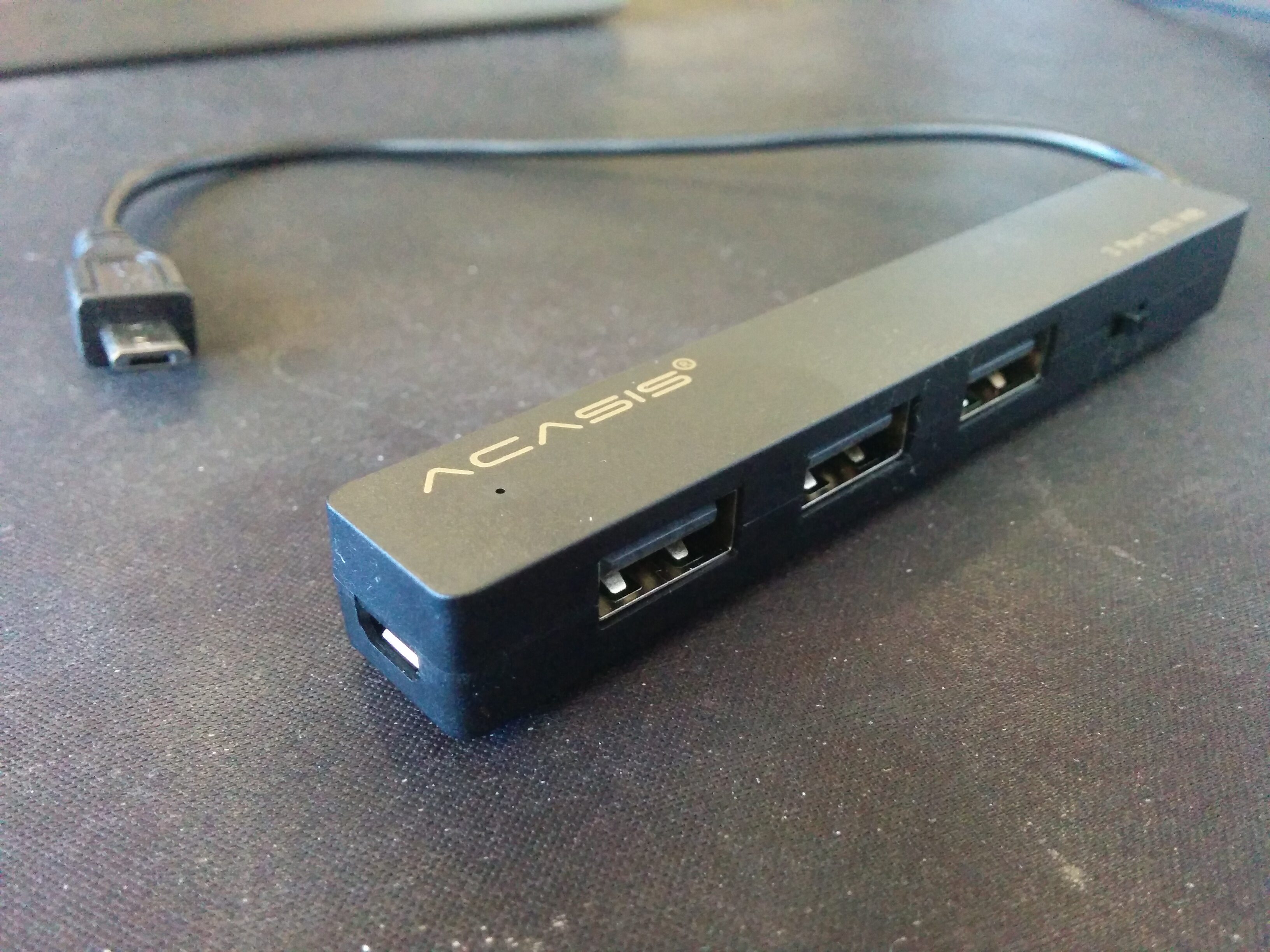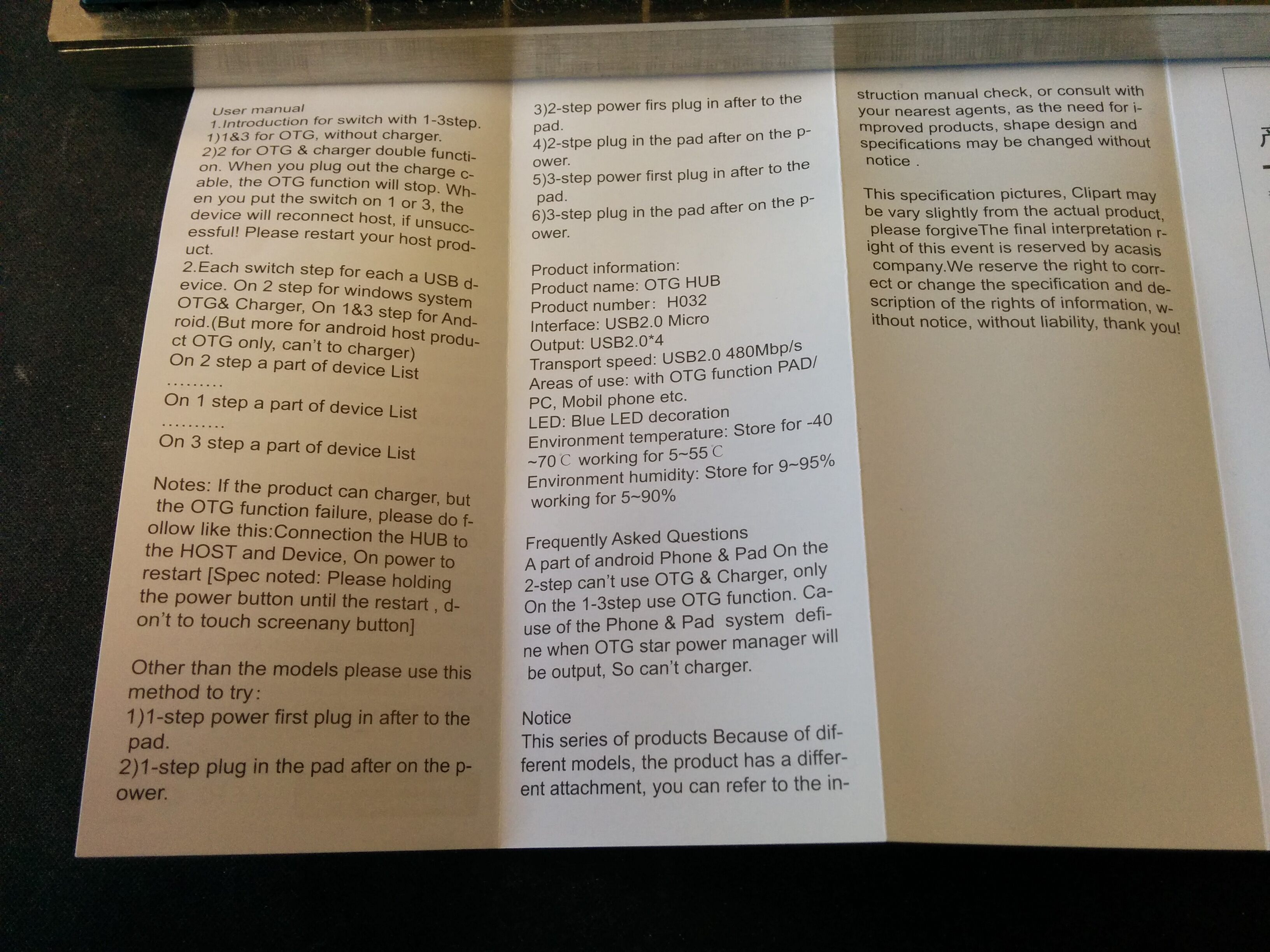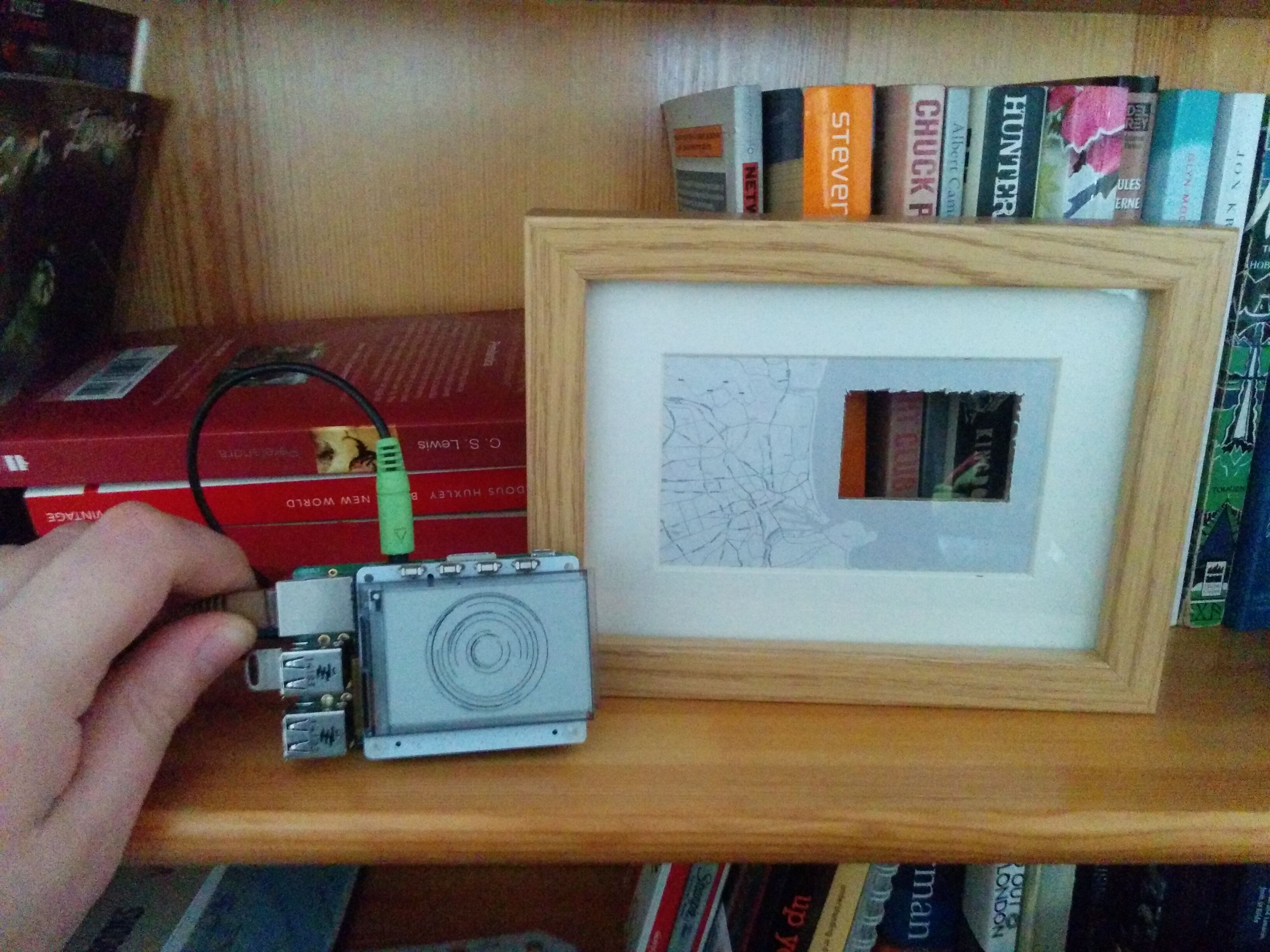For my silly little tablet I got this awesome usb otg hub thing. It has 3 usb
ports, a microusb hole and an otg cable, you can you it to connect 3 devices to
your phone or tablet and power them all at the same time.

I got this thing so I could install something other than windows on my stream
7, to do that I need power, usb storage, usb networking and io stuff all at
once.

It also comes with the most mental instructions I have seen. I am trying to
figure out what it says, but man, who knows. I think there was a deal on 3
postition swtiches and they put it in instead of a 2 position one.
Reading:
Little Brother, Seveneves
Last night, I drilled some holes in a book case and bricked a pi. That isn't so
interesting, unless you really like holes in wood, and it leaves me at a loss
what write about.

Okay, fine. I have this
awesome eink screen
for the pi, I got it to do
something like this
tide clock
. I don't want single purpose things lying
around, the same pi is going to be running
mpd
my music player of choice.
It will be using the screen to show cool effects (like the thing on it now) and
probably stats about things.
What things, I have no idea. Maybe:
* bus times
* output from the house sensors
* whats playing
* network uptime
See, it isn't really fleshed out yet. I do have all the code to write stuff to
the screen, it took ages to get working using python, cairo and pango. Now I
have holes drilled and audio cables routed through the book case, I need to get
the pi up and doing music.
It is not ready yet.
Reading:
Little Brother
Yesterday
featured
a
massive
ddos
attack against DynDNS.
For me, in the north of Scotland, this meant an entire shutdown of the web. ssh
and mosh connections stayed, but everything from twitter to google were
unreachable.
Name discovery in decentralised networks is a really hard problem, I am not
aware of any really solid solutions. There is probably a large capitalist
factor involved here, you really can't centralise profits from a decentralised
system.
I spent some time reading about name systems for adhoc mesh networks, before I
gave up on trying to build this out. It is hard and would require a load of
other people to test.
A quick search of my in brain cache returns:
mdns is probably already running on your local network, it won't scale well and
certainly not to internet sizes. namecoin is something I am just sort of aware
of, I think worry of blockchain buzzword bingo has stopped me looking too hard.
I would love to know about more interesting and diverse systems, if you know of
any drop me a line.
Reading:
Little Brother, Transmetropolitan
I have to ssh proxy to get to my main machine, everything is filtered on the
network my machine is on, apart from the ssh access box. This makes using mosh
a little troublesome.
+-------+
+------+ |ssh | +-----------+
|laptop|-------ssh------->|gateway|--ssh---->| |
+------+<-- +-------+ |dev machine|
\---------mosh------------------->| |
+-----------+
dev can only be reached via an ssh proxy, but thankfully there is an open UDP
port range that works. Mosh seems to have trouble figuring out the correct
ip/port pair to select in this setup, mosh is quite simple so it is easy to
deal with.
Host dev
Hostname dev.domain.tld
User tj
ProxyCommand ssh -w 30 -q gateway.domain.tld nc %h 22
The
mosh
command is just a shell script, it sshs to the remote machine and
runs
mosh-server
. Mosh server generates an AES session key and starts the
mosh server process on the machine.
mosh-client
takes the session key via an
environmental variable, ip address and port the server is listening on.
With that we can run mosh by hand:
[laptop] $ ssh dev
[dev] $ mosh-server
setsockopt( IP_RECVTOS ): Invalid argument
MOSH CONNECT 40001 pv2jeN0MJ1N4gCd1V0i21g
mosh-server (mosh 1.2.5) [build mosh 1.2.5]
Copyright 2012 Keith Winstein <mosh-devel@mit.edu>
License GPLv3+: GNU GPL version 3 or later <http://gnu.org/licenses/gpl.html>.
This is free software: you are free to change and redistribute it.
There is NO WARRANTY, to the extent permitted by law.
[mosh-server detached, pid = 19100]
Warning: termios IUTF8 flag not defined.
Character-erase of multibyte character sequence
probably does not work properly on this platform.
[dev] $ exit
[laptop] $ MOSH_KEY="pv2jeN0MJ1N4gCd1V0i21g"
[laptop] $ mosh-client 143.100.67.5 40001
Once you know how to do mosh by hand there are other things we can try. I don't
think it would be impossible to work around certain types of NAT using nc. It
requires a third party box, but a lot of STUN can be done with just UDP
packets.
Reading:
Little Brother, Transmetropolitan
I am sure I have written this down before, google couldn't find it.



